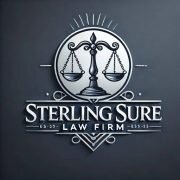Best Bad Faith Insurance Lawyers in Owerri
Share your needs with us, get contacted by law firms.
Free. Takes 2 min.
List of the best lawyers in Owerri, Nigeria
About Bad Faith Insurance Law in Owerri, Nigeria
Bad faith insurance law is an area of legal practice that has to do with an unfair or unjust denial of claims or lack of proper response from the insurance companies. Under Nigerian law, insurance companies are required to act in good faith, meaning they must honestly make decisions and fairly treat their policyholders. When an insurance company fails to uphold this duty, a policyholder in Owerri, Nigeria can potentially file a claim for bad faith. Such situations can cause significant financial and emotional distress and require legal action to rectify.
Why You May Need a Lawyer
Having legal assistance is crucial when dealing with complex insurance matters particularly in cases of bad faith insurance. A common situation where one may require the help of a lawyer is when their insurance claim has been unduly denied or when they are being offered a settlement significantly lower than the claim's worth. Additionally, you may require legal recourse if your insurance company fails to investigate your claim promptly and thoroughly, or if they violate any terms of your insurance policy.
Local Laws Overview
Regulation of insurance in Nigeria is governed by the National Insurance Commission (NAICOM) under the laws of the Federal Republic of Nigeria. The regulations require that all insurance companies handle claims in a just and timely manner. If your claim has been refused, or not properly responded to within an acceptable timeframe, this could constitute a breach of duty of care (bad faith). It's crucial to understand these local regulations to effectively navigate and resolve your bad faith insurance claim.
Frequently Asked Questions
What is Bad Faith Insurance?
Bad faith insurance is a legal term used to describe when an insurance company fails to fulfill its obligations to its policy holder. This can occur through denying a legitimate claim, delaying settlement process, or offering a low settlement amount.
Do I need a lawyer to handle a Bad Faith Insurance claim?
Technically, you don't ALWAYS need a lawyer to handle a bad faith insurance claim, but it is often recommended. A lawyer helps to ensure that your rights are protected, and you aren't being taken advantage of.
Who regulates insurance companies in Nigeria?
The National Insurance Commission (NAICOM) is responsible for regulating insurance companies in Nigeria, ensuring the fair treatment of policy holders.
How can I spot bad faith from my insurer?
Signs of bad faith can include unnecessary delays, inadequate investigations, refusing a claim without reason, or offering less money than a claim is worth.
Can I sue my insurance company for bad faith?
Yes, if your insurer has engaged in bad faith practices, you have the right to sue for compensatory damages, and in some cases, even punitive damages.
Additional Resources
1. National Insurance Commission (NAICOM) - The government body responsible for regulation of the insurance sector.
2. Nigerian Insurers Association (NIA) - A professional membership body for Nigerian insurers, useful for complaints and advice.
3. The Nigerian Bar Association (NBA) - The professional body for legal practitioners, can aid in locating a lawyer specializing in Bad Faith Insurance.
Next Steps
If you believe you are a victim of bad faith insurance practices, your first step should be to seek legal advice. Contact a lawyer that specializes in this area, be open about your situation and provide all necessary documentation related to your insurance policy and claim. It's important to take action swiftly to ensure you don't lose out due to statutory limitations. If required, your lawyer will lodge a formal complaint with the relevant authorities such as NAICOM, or they may initiate legal proceedings against the insurance company.
Lawzana helps you find the best lawyers and law firms in Owerri through a curated and pre-screened list of qualified legal professionals. Our platform offers rankings and detailed profiles of attorneys and law firms, allowing you to compare based on practice areas, including Bad Faith Insurance, experience, and client feedback.
Each profile includes a description of the firm's areas of practice, client reviews, team members and partners, year of establishment, spoken languages, office locations, contact information, social media presence, and any published articles or resources. Most firms on our platform speak English and are experienced in both local and international legal matters.
Get a quote from top-rated law firms in Owerri, Nigeria — quickly, securely, and without unnecessary hassle.
Disclaimer:
The information provided on this page is for general informational purposes only and does not constitute legal advice. While we strive to ensure the accuracy and relevance of the content, legal information may change over time, and interpretations of the law can vary. You should always consult with a qualified legal professional for advice specific to your situation.
We disclaim all liability for actions taken or not taken based on the content of this page. If you believe any information is incorrect or outdated, please contact us, and we will review and update it where appropriate.









